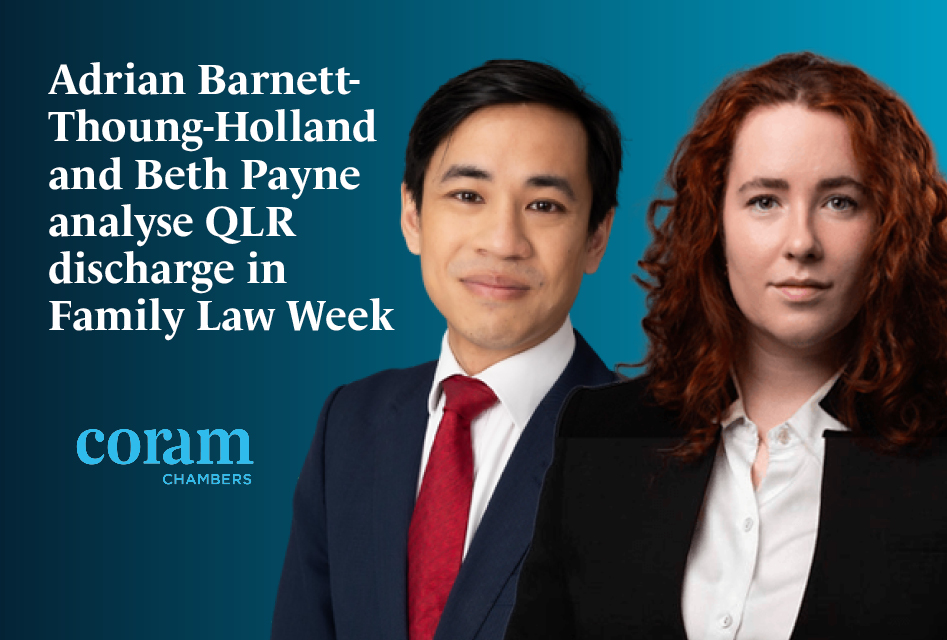Today the Supreme Court handed down judgment in the matter of T (A Child) (Appellant). Duncan Lewis Solicitors (Harrow) acted for the appellant and instructed Mark Twomey QC, Alex Laing and Rachel Cooper of Coram Chambers.
Coram’s Siobhan F. Kelly, who is co-chair of the Association of Lawyers for Children (ALC), represented the ALC who were 1st intervener. She was instructed by Royds Withy King (Swindon).
Background to the appeal:
This appeal concerns the use of the inherent jurisdiction of the High Court to authorise a local authority to deprive a child of his or her liberty. The background to the litigation is the shortage of provision for children who require special limitations on their liberty, for example by a placement in one of the small number of approved secure children’s homes in England and Wales, but for whom no space is available, or who would be better served by highly specialised care albeit still with their liberty limited. This shortage has forced local authorities to seek orders from the High Court under its inherent jurisdiction authorising alternative restrictive placements of children elsewhere than in an approved secure children’s home. A secure children’s home is typically accommodation designed for the purpose of restricting liberty, and while the regime may vary from home to home, would commonly include extensive CCTV, high fencing or walls with limited views, and reinforced and locked doors and windows
The decision:
The Supreme Court unanimously dismissed the appeal. It held in particular that the use of the inherent jurisdiction to authorise the deprivation of liberty in cases like the present is permissible, but expressed grave concern about its use to fill a gap in the child care system caused by inadequate resources.
To read the full judgment, please click here.


